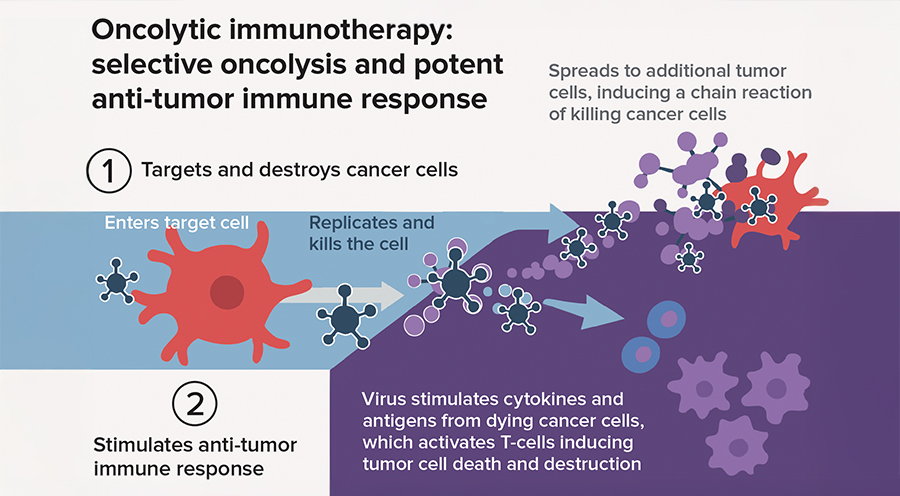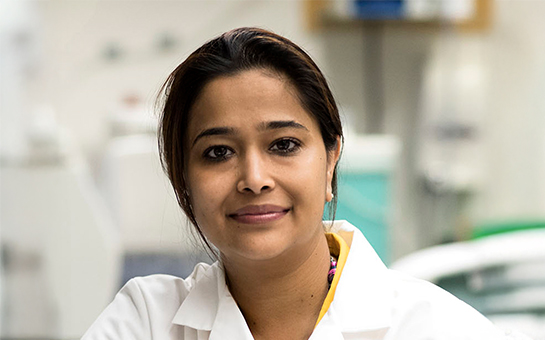The innovative treatment could reduce significant stress for patients who have intermediate-risk non-muscle invasive bladder cancer (IR-NMIBC) by increasing their options for treatments to preserve their bladder. Before this trial began, about 70% of these patients could only “watch and wait” and hope that their cancer did not return.
A surgical procedure called transurethral resection of the bladder tumor to remove cancerous cells is the most common method of treating IR-NMIBC. But despite use of medication to suppress future tumor growth, many of these bladder cancer patients experience cancer recurrence.
Monitoring for any recurrence of cancer requires patients to undergo cystoscopy periodically. This involves inserting a tiny video camera through a tube into the urethra and bladder every 3–6 months to check for cancerous tumors.
Researchers test virus engineered to kill cancer cells
UC Davis is one of a handful of sites across the country trying something new for bladder cancer patients. The PIVOT-006 clinical trial will test the effectiveness of cretostimogene grenadenorepvec (cretostimogene) with IR-NMIBC patients.
Cretostimogene is a laboratory-altered virus designed to target and kill cancer cells. It is unique because it can replicate within bladder cancer cells and then trigger an anti-tumor response. This means it destroys cancer cells while sparing normal, healthy cells.
“We are excited to participate in this nationwide clinical trial. The results will provide crucial data to determine if cretostimogene can help reduce recurrence and improve survival rates for our patients with this type of bladder cancer,” said Thenappan Chandrasekar, a urologist and associate professor with the UC Davis Department of Urologic Surgery. Chandrasekar is leading the PIVOT-006 clinical trial at UC Davis Health.

Clinical trial may make big strides in creating treatment alternative
In the past, a drug therapy called Bacille Calmette-Guerin that comes from a form of the tuberculosis vaccine has been used in IR-NMIBC patients to try to activate the immune system to attack the cancer. However, the live vaccine has been in short supply for many years due to stringent manufacturing requirements. As a result, only a small percentage of IR-NMIBC patients can access the drug.
The phase 3 PIVOT-006 study in which UC Davis is participating is a randomized trial. It’s designed to assess whether adding cretostimogene therapy after surgery improves patient outcomes compared to surgery alone. If successful, this therapy could offer a new, more effective treatment option for patients struggling with this stubborn cancer.
“This could represent a major step forward in addressing the unmet medical needs of these patients,” Chandrasekar said. “We are hopeful that this will allow us to do much more than monitor for recurrence and actually give us a fighting chance to stop the cancer in its tracks.”
We are hopeful that this will allow us to do much more than monitor for recurrence and actually give us a fighting chance to stop the cancer in its tracks.” —Thenappan (Thenu) Chandrasekar, Associate Professor, Department of Urology





